STOOGE YOUR ENTHUSIASM (intro)
By:
October 1, 2023
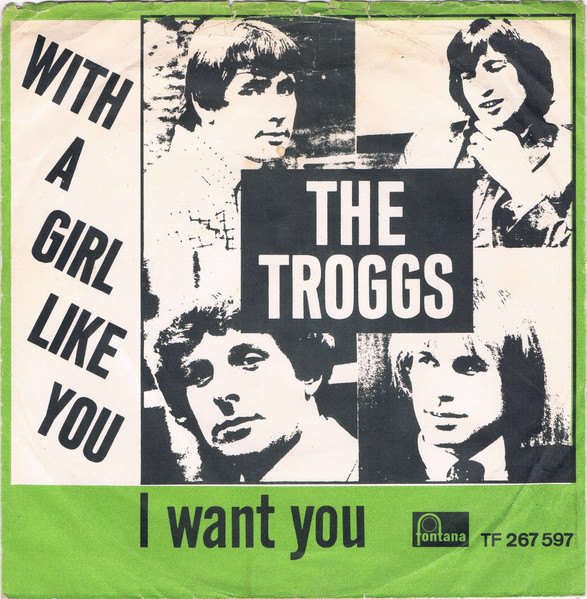
Introduction to a series of 25 enthusiastic posts, contributed by 25 HILOBROW friends and regulars, on the topic of proto-punk records from the Sixties (1964–1973, in our periodization schema). Series edited by Josh Glennn.
For our 4Q2023 multi-contributor series, STOOGE YOUR ENTHUSIASM, I asked twenty-five HILOBROW friends and regular contributors to write about a favorite record from the Sixties (c. 1964–1973) which — to their ears — contains “Punk DNA.” The assignment was purposely vague; I hoped that the resulting series would include not only various proto-punk classics, but overlooked and underappreciated stuff too… as well as at least a few records that no one has ever before thought to describe as “proto-punk.”
I’m thrilled with how the series has turned out! Here’s the STOOGE YOUR ENTHUSIASM lineup:
Mandy Keifetz on The Trashmen’s SURFIN’ BIRD | Nicholas Rombes on Yoko Ono’s MOVE ON FAST | David Cantwell on ? and the Mysterians’ 96 TEARS | James Parker on The Modern Lovers’ SHE CRACKED | Lynn Peril on The Pleasure Seekers’ WHAT A WAY TO DIE | Lucy Sante on The Count Five’s PSYCHOTIC REACTION | Jonathan Lethem on The Monkees’ YOUR AUNTIE GRIZELDA | Adam McGovern on ELP’s BRAIN SALAD SURGERY | Mimi Lipson on The Shaggs’ MY PAL FOOT FOOT | Eric Weisbard on Frances Faye’s FRANCES AND HER FRIENDS | Annie Zaleski on Suzi Quatro’s CAN THE CAN | Carl Wilson on The Ugly Ducklings’ NOTHIN’ | Josh Glenn on Gillian Hill’s TUT, TUT, TUT, TUT… | Mike Watt on The Stooges’ SHAKE APPEAL | Peter Doyle on The Underdogs’ SITTING IN THE RAIN | Stephanie Burt on Pauline Oliveros’s III | Marc Weidenbaum on Ornette Coleman’s WE NOW INTERRUPT FOR A COMMERCIAL | Anthony Miller on Eno’s NEEDLES IN THE CAMEL’S EYE | Gordon Dahlquist on The Sonics’ STRYCHNINE | David Smay on The New York Dolls’ HUMAN BEING | Michael Grasso on the 13th Floor Elevators’ YOU’RE GONNA MISS ME | Holly Interlandi on Death’s ROCK’N’ROLL VICTIM | Elina Shatkin on Bobby Fuller’s I FOUGHT THE LAW | Brian Berger on The Mothers of Invention’s WHO ARE THE BRAIN POLICE? | Peggy Nelson on The Kingsmen’s LOUIE LOUIE.
I’m grateful to the series’ contributors — many of whom have donated their honorarium to Covenant House, which provides housing and supportive services to youth facing homelessness.
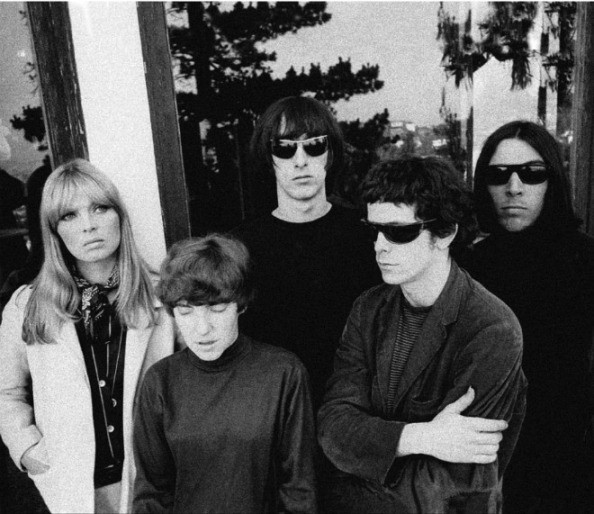
Also please check out the following HILO HERO posts: Mimi Lipson on JONATHAN RICHMAN | David Smay on BRIAN ENO | Mimi Lipson on JOHNNY THUNDERS | David Smay on IGGY POP | Adam McGovern on LOU REED | Lynn Peril on DAVID JOHANSEN | Peggy Nelson on YOKO ONO | David Smay on THE MONKEES | Erik Davis on FRANK ZAPPA.
This series doesn’t include such favorite proto-punk records as: The Kinks’ YOU REALLY GOT ME, The Puddin’ Heads’ NOW YOU SAY WE’RE THROUGH, Them’s GLORIA, The Barbarians’ ARE YOU A BOY OR ARE YOU A GIRL?, The Sonics’ PSYCHO, The Shangri-Las’ LEADER OF THE PACK, The Who’s MY GENERATION, The Standells’ DIRTY WATER, The Troggs’ WITH A GIRL LIKE YOU, Los Saicos’ ¡DEMOLICIÓN!, The Yardbirds’ STROLL ON, Kim Fowley’s BUBBLE GUM, Paul Revere & The Raiders’ KICKS, Love’s SEVEN AND SEVEN IS, The Cavemen’s IT’s TRASH, The Royal Flairs’ SUICIDE, The Montells’ YOU CAN’T MAKE ME, The Benders’ CAN’T TAME ME, The Velvet Underground’s HEROIN, The Seeds’ PUSHIN’ TOO HARD, The Chocolate Watchband’s SWEET YOUNG THING, Captain Beefheart’s ZIG ZAG WANDERER, The Elastik Band’s SPAZZ, The Outsiders’ MISFIT, The Stooges I WANNA BE YOUR DOG, Alice Cooper’s I’M EIGHTEEN, T. Rex’s RIP OFF, New York Dolls’ PERSONALITY CRISIS, and The Neon Boys’ LOVE COMES IN SPURTS. However, you can enjoy all of this material and more via HILOBROW’s proto-punk playlist at Spotify.
Below, please find a few introductory notes…
What is proto-punk?
Freewheeling and anarchistic, Proto-Punk generated a wide range of heterogeneous artistic reactions against earlier aesthetics. By contrast, Punk was frequently characterized by more unified, programmatic, or positive actions. Partly owing to this contrast in purposes, it is not surprising to find that characteristic works of proto-Punk are harder to locate, classify, and even appreciate, precisely because of the looser, more immediate, and ephemeral nature of proto-Punk itself. Punk left more traces, partly because its effects were intended to be deeper and more transformative.
I’ve lifted the preceding material from a Dada & Surrealism exhibition catalog, merely substituting “Proto-Punk” for “Dada” and “Punk” for “Surrealism.” There’s a similar syndrome at work here. Certainly it’s easier to locate, classify, and appreciate characteristic punk records than it is to do so for “proto-punk” — a back-formation that many musicians from the era would reject. And yet… at least since the 1972 release of Nuggets, Lenny Kaye’s compilation of American psychedelic and garage rock singles from the mid-to-late 1960s, many of us have tended to agree that there were “punk” stirrings before Punk broke (c. 1973/1974). In fact, Kaye’s liner notes boast one of the first recorded uses of the term “punk rock”; and Jon Savage, in England’s Dreaming, cites Nuggets as a major influence on punk.
There’s no such thing as proto-punk; long live proto-punk. Moving on, then…
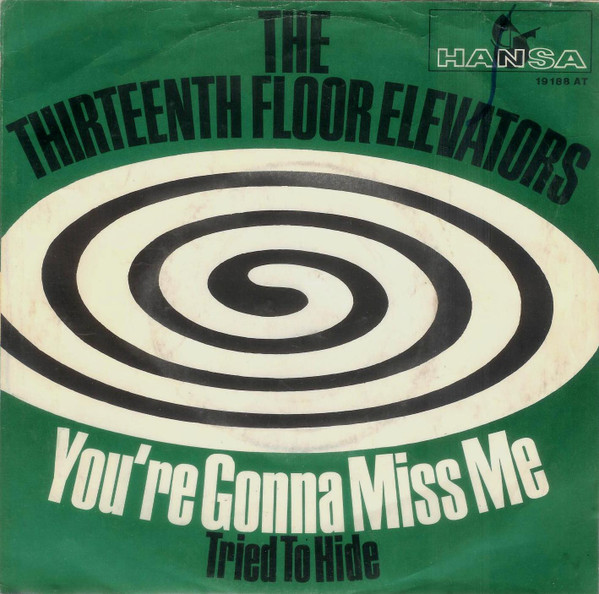
The STOOGE YOUR ENTHUSIASM series is a prequel of sorts to CARBONA YOUR ENTHUSIASM — a 2020 series via which our contributors shared 25 favorite Punk records from c. 1974–1983. (It’s also a prequel to 2016’s QUIRK YOUR ENTHUSIASM series — about New Wave records, c. 1974–1983.) In my introduction to the CARBONA series, I surfaced a few overarching themes from the contributors’ essays.
Punk records, according to HILOBROW’s contributors, tend to feature: barbaric yawps of righteous anger and contempt; defiant uselessness and inefficiency; alienation expressed at the level of both form and content; impropriety and malformation; temporary autonomous zones and noncoercive utopianism; defiant amateurishness and an aesthetics of “stoopid”; sardonicism and irony; heartfelt emotion and glee. Let’s call this volatile admixture of qualities Punk’s “DNA.” Do our contributors detect signs and symptoms of these tendencies in the pre-1974 records about which they’ve chosen to write? Let’s take a look.
EMOTION AND GLEE

Mandy Keifetz, writing about “Surfin’ Bird” (1963 — slightly ahead of the curve) describes it as “the sheer joyful exuberance of everyone’s purest id,” and recalls discovering that this record — a tribute to which is tattooed on her flesh — gave her adolescent self permission to be “an exuberant goofball.”
“man, what a freight train — no way to stop this hard-charger, nope,” enthuses legendary post-punk bassist and songwriter Mike Watt about “Shake Appeal.” “tied to the bow of this baby is ig, his voice cutting right though like a wild-ass alto sax w/righteous illuminated mind-exploder words like ‘memory has got to go!’ — him channeling that BIG riff into a vehicle to syncopate a thought stream verbally into ‘pert-near ‘drum-thump’ sex sing expressing head-on crazy wail, hand claps in my brain aiding and abetting BIG TIME.”
YAWPS OF ANGER AND CONTEMPT

“Quatro’s voice rises in desperation and urgency as the song progresses,” writes Annie Zaleski about “Can the Can.” “Before devolving into a scream and taking an urgent tone on a repeated exhortation of, ‘Honey! Honey! Honey!'”
“It’s hard to believe listening to the pain and heartbreak and worldweary despair of Roky singing “You’re Gonna Miss Me,” but this is an 18-year-old kid!” writes Michael Grasso of “You’re Gonna Miss Me.” “A kid howling his heart out, channeling the Older, Weirder America churning underneath all that novel psychedelic generational energy.”
Another unlikely source: prog rock, generally considered the antithesis of punk. “It’s all slogans and chants,” points out Adam McGovern in his essay on “Brain Salad Surgery,” “in the paranoid panic of what we’d soon know as punk.”
DEFIANT USELESSNESS
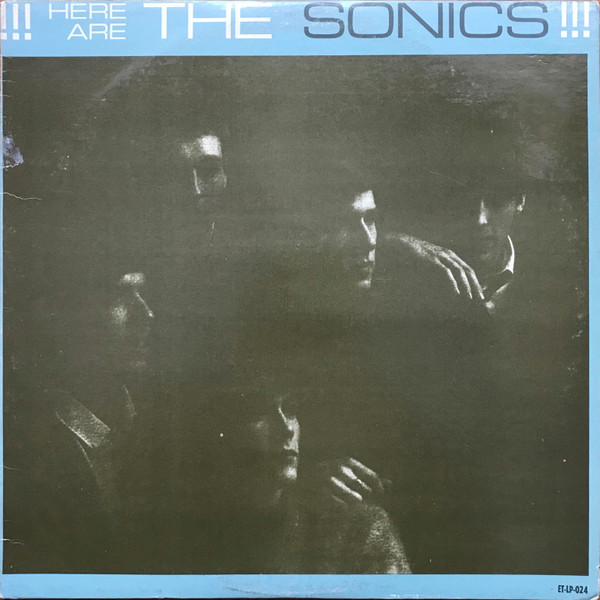
“Gerry Roslie’s harsh vocals evoke a kind of Hell’s Angel lifestyle of self-destruction, maybe ridiculous, but also genuinely daunting,” Gordon Dahlquist writes of “Strychnine.” “Indeed, the setting conjured up by the song is less guys-in-a-garage so much as guys-best-not-to-fuck-with-in-a-biker-bar….”
“The Kingsmen’s 1963 recording of ‘Louie Louie’ was a happy accident that had it all,” writes Peggy Nelson of that song. “A DIY ethos and sound, simple chords, screamed lyrics, a lack of commitment to narrative structure, and sheer, unadulterated thrash.”
ALIENATION IN FORM AND CONTENT
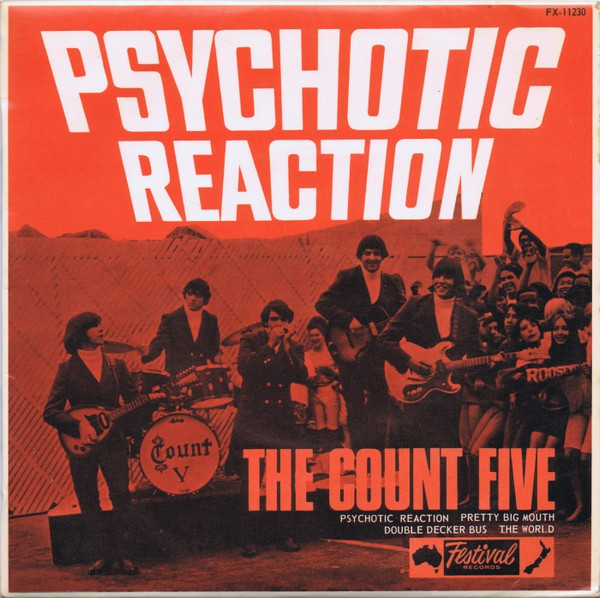
“‘Psychotic Reaction’ takes apart the conventional blues-boogie of its inspirations,” writes Lucy Sante, “in order to enact the breakdown.”
James Parker hears in “She Cracked” a “deconstructed drone, chopped up and then accelerated” — as well as “an incredible, vicious lament.”
“Frantic drum beats. Riffs like sludgy electric slabs, like determined vermin descending into dark matter while grating against existence,” writes Holly Interlandi of “Rock-n-Roll Victim.” “Like something you’d find on an old cassette buried at the back of your brother’s closet.”
“Instead of the expected chorus… there comes A SCREAM!!! as wild and shocking as any ever before recorded,” writes Brian Berger of “Freak Out!” “It’s not a Wagner opera nor Little Richard, but both would surely recognize its impact, which signals a mad cacophony of noise, pounding rhythms, distorted guitars, and voices intoning ‘I’m going to die’…”
IMPROPRIETY AND MALFORMATION
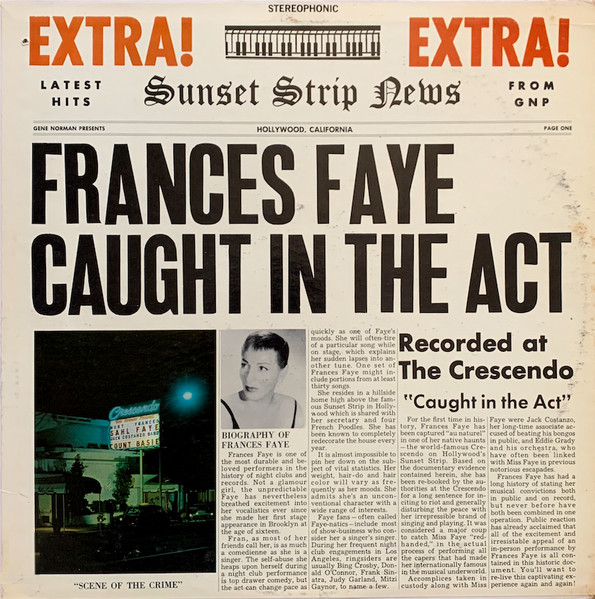
“In which a cabaret singer, who at first sounds like a Judy Garland imitator,” Eric Weisbard says of Frances Faye’s 1959 song “Frances and Her Friends,” “shifts during a live Vegas backroom performance from that mode to a manic pairing of different names, largely same sex (‘Abey goes with Davy’) but there’s time to fantasize particulars over the suspended jazz beat, then that erupts into a version of ‘Shake, Rattle and Roll.’ Whoa.”
“You can recognize in these discordant instances,” writes Marc Weidenbaum of Ornette Coleman’s “We Now Interrupt for a Commercial,” “a precognition of the more difficult and intractable approach Coleman would eventually become synonymous with: cacophonous, angular, vivacious — which is to say: punk.”
“Sylvain plays his part with both feet planted in R&B and girl groups and Stonesy blues stings, and Johnny plays the part that sounds familiar but unprecedented,” writes David Smay of “Human Being.” “Syl plays the licks and accents and Johnny stomps down into the riff with his platform heel, creating the filthiest guitar tone, a thick relentless chaotic assault that’s my favorite thrill ride.”
AMATEURISHNESS / “STOOPID”
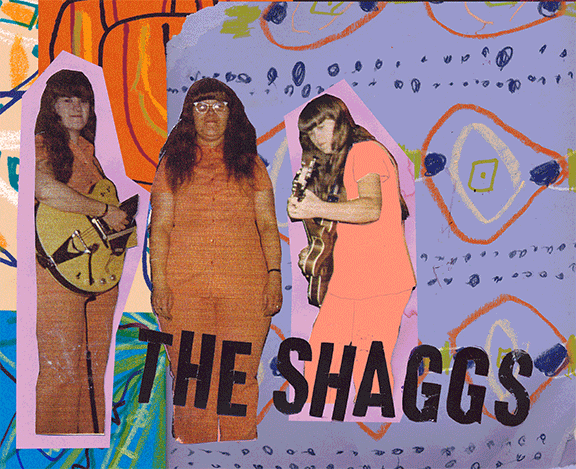
Nicholas Rombes suggests that “Move on Fast” — by Yoko Ono — helps us connect the dots between punk and the “noise music and process-over-finished-product, DIY sensibility” of avant-garde artists like Ono herself.
“It was intended as the B-side of a single on the Zodiac label,” recalls Peter Doyle of “Sitting in the Rain,” “and the band thought this was just a practice run, but it ended up being the take, and that erstwhile b-side became a surprise hit in New Zealand that year.”
“High hat, snare, cymbal, floor tom: each discovered and briefly explored. What does this thing do? Tap, tap. And this?,” writes Mimi Lipson of “My Pal Foot Foot.” “Guitars come in thwanging low, uncertain of their welcome, each tuned to a different Martian key.”
SARDONICISM AND IRONY

“96 Tears” is “one scary-ass record,” says David Cantwell — who recalls hearing it on the radio when he was in high school. “’You’re gonna cry 96 tears,’ a mocking Question Mark intones over and over, like a curse: No future for you but tears.”
In “Aunty Grizelda,” Jonathan Lethem discerns “what I believe may be the most generally overlooked punk antecedent — the novelty song, which is where disposability, atonality, Mad-magazine-level snotty social commentary, and bathroom humor all secrete themselves in the long journey between ’50’s rock and The Ramones, et al.”
“You want nihilism?” demands Lynn Peril, in her installment on “What a Way to Die.” “I got your blank generation right here: A 17-year-old girl singing about drinking herself to death with gleeful, semi-erotic abandon.”
It’s worth noting that noncoercive utopianism is the sole theme that does not appear to surface from our survey of proto-punk. Could this perhaps be the secret sauce that distinguishes punk from proto-punk? It would certainly justify my appropriation of the Dada vs. Surrealism quote offered up top, i.e., the notion that in both cases the latter movement, unlike the former, has a sociocultural and to some extent a political agenda. Hmm…
STOOGE YOUR ENTHUSIASM kicks off tomorrow — enjoy!
JACK KIRBY PANELS | CAPTAIN KIRK SCENES | OLD-SCHOOL HIP HOP | TYPEFACES | NEW WAVE | SQUADS | PUNK | NEO-NOIR MOVIES | COMICS | SCI-FI MOVIES | SIDEKICKS | CARTOONS | TV DEATHS | COUNTRY | PROTO-PUNK | METAL | & more enthusiasms!
